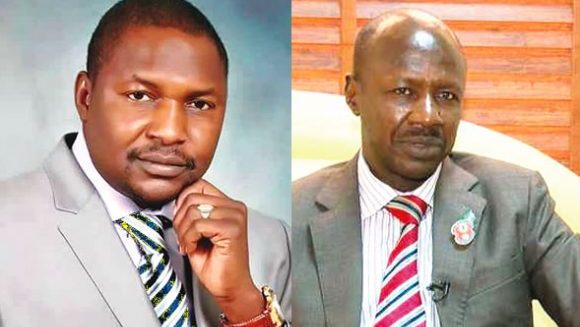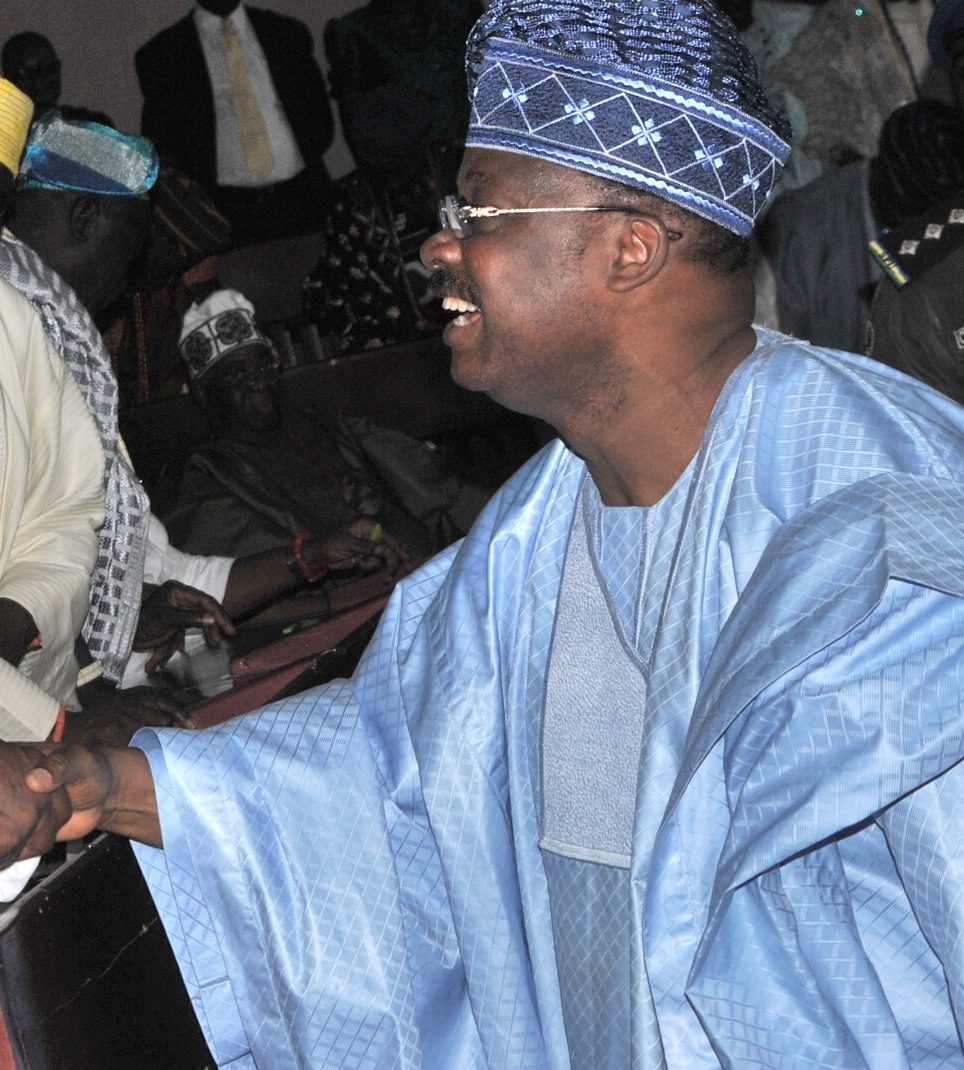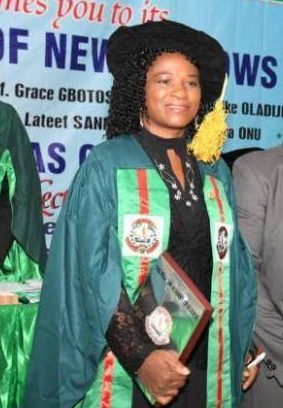A group of civil society organisations has described the rift between the Attorney General of the Federation and Minister of Justice, Abubakar Malami, and the Acting Chairman of the Economic and Financial Crimes Commission, EFCC, Ibrahim Magu, as a needless controversy capable of weakening the on-going anti-corruption war in the country.
The groups are African Centre for Media and Information Literacy; Civil Society Network Against Corruption; Civil Society Legislative Advocacy Centre; Procurement Observation and Advocacy Initiative; Niger Delta Budget Monitoring Group and Democrats of Conscience.
Malami had in a statement that emanated from his office last week alleged that Magu’s “ignoble role” led to the suspension of Nigeria from the Egmont Group of Financial Intelligence Units.
According to him, Magu made it impossible for the National Financial Intelligence Unit to be independent of the EFCC as required by the global financial intelligence body.
But in a press statement jointly issued, the civil society groups described the development as an embarrassment to the federal government under which they are serving.
“We see the deepening disharmony between the two government institutions as an embarrassment to the federal government and it is capable of weakening its anti-corruption efforts,” the group said.
The group said rather than engage in an unnecessary war, they should be focused on the war against corruption.
“Instead of engaging in “petty shadow boxing,” what the country needs at this moment, particularly in the war against corruption, is focused leadership. In our opinion, this is no time to give in to the wiles of inordinately ambitious fifth columnists.
“We can’t afford to allow emotions ruin the fight against corruption,” said the group.
It reasoned that the recent statement from the office of the Attorney General of the Federation and Minister of Justice, accusing Magu of frustrating the anti-corruption war was wrong.
According to it, it was a case of generalisation.
They said with the amount of success the EFCC had recorded so far under the leadership of Magu, it would be unfair to categorise him as a failure.
The group pointed out that the issue of Magu’s refusal to forward some cases to the office of the Minister of Justice as had been requested must have been for certain reasons.
The group explained: “In 2013, the Federal Government worried by the loss of revenue through oil theft and pipeline vandalism set up a Committee on Crude Oil Theft headed by the then Vice President, Namadi Sambo.
“The Committee set up other sub-committees, one of which was headed by the then AGF and Minister of Justice, Mohammed Adoke, who was given the task of prosecuting oil theft cases.
“Though, EFCC originally had no representative on the committee, it was invited by the committee when it realized that the bulk of the oil theft cases were being prosecuted by the Commission.
“It was then directed to transfer original case files dealing with crude oil theft to the Ministry of Justice for evaluation and prosecution.
“Although the Commission forwarded over 100 duplicate files to the Ministry of Justice with a good number of them at various stages of prosecution, up till this moment there is no news about the status of these case files from the Ministry of Justice and the suspects freely walking the streets with their proceeds of crimes.
“Had the Commission sent the original case files as demanded, all the oil theft cases being prosecuted in courts would have been thrown out for lack of diligent prosecution.
“During the banking sector reform initiated in 2009 by the then Governor of Central Bank of Nigeria, Sanusi Lamido Sanusi, a number of bank executives were arrested and detained for prosecution.
“The then AGF, Mohammed Adoke, and the then EFCC Chairman, Farida Waziri, assembled a consortium of lawyers made up of SANs who were paid humongous legal fees to handle the cases.
“But as far as we can remember, only the case involving Cecilia Ibru, former Managing Director of Oceanic Bank, was concluded through plea bargain. Till date, nothing again has been heard of the other cases.
“Based on this unpalatable experience, we are aware that the current leadership of the EFCC had to review its prosecution strategy by placing greater emphasis on the use of in-house prosecutors in prosecuting high profile cases instead of farming out its cases to external counsels many of whom are motivated by financial gains.”
Finally, the group said the action of the AGF was not in tandem with the anti-corruption agenda of President Muhammadu Buhari’s administration.
According to the civil society groups, the focus should be on fighting the war against corruption and not each other.
Next Edition… Always Ahead!










